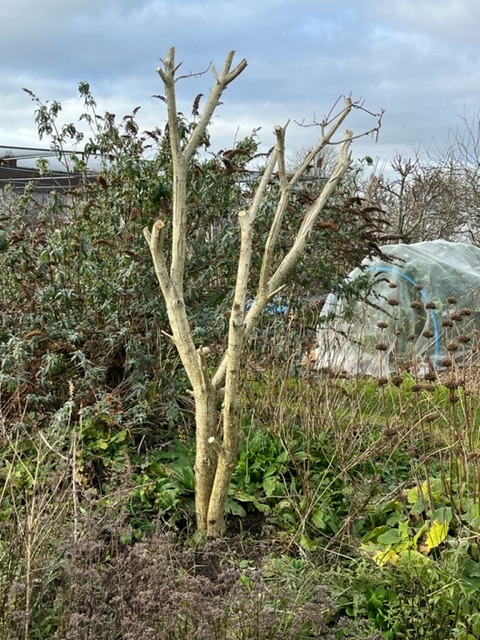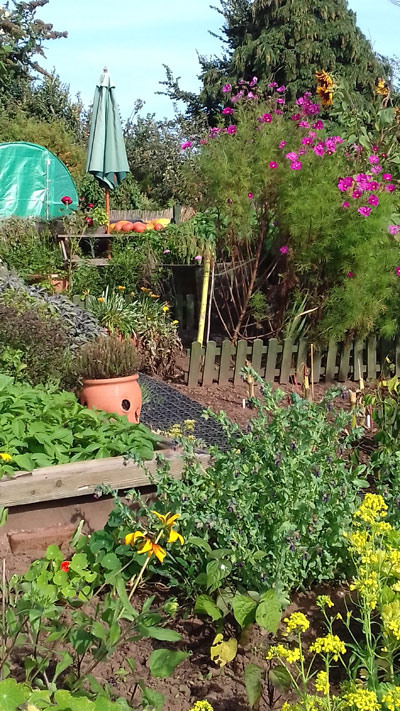The Wildlife Plot in January 22
 It's been quite a busy time on the wildlife plot because November to March is really when I can make some of the bigger changes that I want to do before seed sowing and planting take over on my veg plots. Noel has done sterling work and, just like Neptune holding back the sea, he has managed to hold back the advancing tide of Vinca major. It is now firmly under control, pooling in a circle around a tired buddleja, where it belongs!
It's been quite a busy time on the wildlife plot because November to March is really when I can make some of the bigger changes that I want to do before seed sowing and planting take over on my veg plots. Noel has done sterling work and, just like Neptune holding back the sea, he has managed to hold back the advancing tide of Vinca major. It is now firmly under control, pooling in a circle around a tired buddleja, where it belongs!
I have been building log piles.
This month's post is all about log piles for wildlife, why you might want them and different ways they can be constructed.
- By Joy Simpson
Happy New Year
 Happy New Year and hello to some sunshine at long last. It feels as if it has been very grey and damp for weeks and weeks but that has finally changed. I went down to the wildlife plot on a sunny afternoon this week only to find the bees out on the heather. I have moved the heather to pots with ericaceous compost and they are doing much better. I don't think the soil on the plot is that acidic nowadays and so they were looking a bit straggly and like they were suffering. There is a white and pink heather both flowering now, but the white one wins hands down as the bees' favourite of the two.
Happy New Year and hello to some sunshine at long last. It feels as if it has been very grey and damp for weeks and weeks but that has finally changed. I went down to the wildlife plot on a sunny afternoon this week only to find the bees out on the heather. I have moved the heather to pots with ericaceous compost and they are doing much better. I don't think the soil on the plot is that acidic nowadays and so they were looking a bit straggly and like they were suffering. There is a white and pink heather both flowering now, but the white one wins hands down as the bees' favourite of the two.
- By Joy Simpson
Christmas wreath making on the vegetable course

One of the best things that I have done this year is to be part of the Vegetable Course. We have not only learnt how to grow vegetables but have also eaten a lot of cake, made scarecrows, eaten Jen's pickle, learnt how to make celariac remoulade with Hannah, spread muck, shared seeds and had a graduation ceremony with even more cake. To end our year, instead of a Christmas party, we got together for a Christmas wreath making session led by our esteemed leader, John.
- By Joy Simpson
